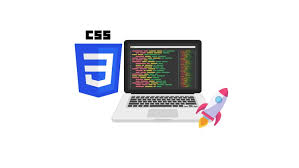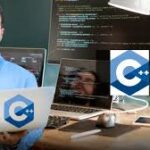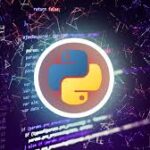C Programming 2024: Master the Fundamentals of C Programming Language. Join the Comprehensive C Bootcamp Masterclass
Summary
This C programming course offers a comprehensive introduction to the fundamental concepts of programming using C, a powerful and widely-used language essential for various fields, including systems programming, game development, and data management. It is designed for learners at all levels, particularly beginners and those looking to strengthen their programming fundamentals.
Course Objectives: Participants will:
- Understand basic programming concepts, including data types, control structures, and functions.
- Write efficient and optimized code.
- Apply programming best practices to solve real-world problems.
- Use C programming in various software development projects.
- Communicate programming concepts effectively.
Learning Structure: The course is structured to facilitate easy learning, even for those without prior experience. Each module includes clear explanations and practical examples to illustrate how concepts are applied in real-world scenarios. Experienced instructors will provide support and answer questions throughout the course.
Key Topics Covered:
- Basics of C Programming: Introduction to C syntax, data types, and variables.
- Control Flow: Understanding conditions and the execution flow of programs using if statements and switch cases.
- Loops: Mastering different types of loops, including for, while, and do-while constructs.
- Functions: Learning how to create and utilize functions for modular programming.
- Storage Classes and Recursion: Exploring variable lifetime and scope, and using recursion for problem-solving.
- Arrays and Strings: Working with collections of data and manipulating text strings.
- Pointers: Understanding memory addresses, pointer arithmetic, and their applications.
- Dynamic Memory Management: Utilizing functions like malloc and free to manage memory dynamically.
- Structures and Unions: Creating complex data types to group related variables.
Requirements: To participate in this course, learners need:
- A computer with a C compiler (e.g., GCC, Clang, or Microsoft Visual Studio).
- A text editor or IDE (e.g., Visual Studio Code, Eclipse, or Dev-C++) for coding.
- Recommended textbooks or online resources for reference.
- A positive mindset, patience, and persistence to tackle challenges and debug code.
Practice and Application: Hands-on exercises, quizzes, and assignments are integral to the course, emphasizing the importance of practice in mastering C programming. Students will be encouraged to write and execute code frequently to reinforce their understanding and skills.
Career Opportunities: The demand for C developers is high, with opportunities available in large companies and startups. Mastering C programming can lead to lucrative career paths in various fields:
- Computer Science Students: Essential for a solid programming foundation.
- Engineers and System Administrators: Critical for developing and optimizing software.
- Web and Game Developers: Important for back-end integration and game mechanics.
- Data Analysts and Scientists: Useful for data analysis and simulation software development.
- AI and Machine Learning Professionals: Valuable for optimizing algorithms.
Conclusion: By the end of the course, participants will possess a strong understanding of C programming and be equipped to write optimized code for practical applications. Whether you are a student, a professional looking to enhance your skills, or someone interested in programming, this course serves as an excellent gateway to the world of software development. Happy learning!
What you’ll learn
-
Understand the fundamentals of programming
-
Write efficient and optimized code
-
Solve real-world problems using C programming
-
Develop programming skills
-
Apply programming best practices
-
Use C programming in software development projects
-
Communicate programming concepts
Requirements
-
you will need a computer with a C compiler, a text editor or IDE, C programming textbooks, and a positive mindset for learning and practicing.
Description
C programming is a powerful and versatile language that has been around for several decades. It is widely used in various domains, including systems programming, game development, database management, and more. Learning C programming can open up many career opportunities and enable you to build robust and efficient software applications.
Welcome to our C programming course! In this course, you will learn the fundamental concepts of C programming, including data types, variables, operators, control structures, functions, recursion, arrays, strings, pointers, Dynamic memory, Structures and unions.
Our course is structured in a way that is easy to follow, even if you have no prior programming experience. We will provide clear explanations of each concept, accompanied by practical examples to help you understand how to apply them in real-world scenarios. Our instructors are experienced programmers who have a passion for teaching, and they are always available to answer any questions you may have.
In addition to the theoretical concepts, we also provide hands-on exercises, quizzes, and programming assignments to help you reinforce your learning. We believe that practice is essential to learning programming, and our course is designed to provide you with ample opportunities to practice and apply what you have learned.
At the end of our C programming course, you will have a solid understanding of the language and be able to use it to develop practical applications. You will also be equipped with the skills needed to write efficient and optimized code, which is essential for any software development project. So, whether you’re a beginner or an experienced programmer looking to expand your skill set, our C programming course is the perfect place to start.
“C Language is definitely here to STAY!”
C is HIGHLY USEFUL & HIGHLY EFFICIENT.
And finally, to answer a question that a lot of you may have – there is a HIGH DEMAND for C Developers in the market – at both large companies as well as startups – and the salaries are usually PRETTY HIGH! 🙂
So C Programming – usually pays off.
In this course, you’ll learn the fundamentals of programming using C Language – including different concepts such as:
- Basics in C
- Conditions & Control Flow (controlling the execution flow of a C Program)
- Different types of Loops (including For, While, and Do-While in C)
- Functions
- Storage Classes & Recursions (Concepts + C Usage)
- Arrays in C
- Strings
- Pointers
- Dynamic Memory Management
- Structures
- Unions
Software Requirements:
- A C compiler: Students will need a C compiler installed on their computer to write and run C programs. There are many different compilers available, both free and commercial. Some popular options include GCC (GNU Compiler Collection), Clang, and Microsoft Visual Studio. Students should choose a compiler based on their operating system (e.g., Windows, macOS, Linux) and personal preferences.
- A code editor or integrated development environment (IDE): Students will need a program to write and edit their C code. Some popular options include Visual Studio Code, Sublime Text, and Eclipse. An IDE like Code::Blocks or Dev-C++ can also be used, which typically include a code editor, compiler, and debugger in one package.
Additional Materials:
- A textbook or online resource: While not strictly necessary, having a reference text or online resource can be very helpful when learning C programming. Some recommended resources include “The C Programming Language” by Brian Kernighan and Dennis Ritchie, “C Programming Absolute Beginner’s Guide” by Greg Perry and Dean Miller, and “Learn C the Hard Way” by Zed A. Shaw.
- Practice problems: To truly master C programming, students will need to practice writing code. There are many online resources that offer coding challenges and exercises.
Appropriate Mindset:
- Patience and persistence: C programming can be challenging, especially for beginners. Students should expect to encounter errors and spend time debugging their code. It’s important to stay patient and persistent in the face of these challenges.
- A willingness to learn: C programming is a complex topic, but it can be mastered with practice and dedication. Students should be open to learning new concepts and techniques and be willing to put in the time and effort required to become proficient in C programming.
After taking course, you need to practice the syntax and start writing C code and execute it. This practice will definitely help you to solve assignments correctly.
Happy Learning!!
Who this course is for:
- Computer Science students: C programming is often a core requirement for computer science students, and this course can help them develop a solid understanding of the language.
- Engineers: Engineers who work in software development or embedded systems often need to know C programming, making this course a valuable resource.
- Web Developers: C programming is not typically used for web development, but it is still a valuable language to know for optimizing and integrating back-end systems.
- Game Developers: C programming is widely used in game development, making this course a must-have for aspiring game developers.
- System Administrators: C programming is an essential skill for system administrators, as it enables them to develop and optimize system-level software.










